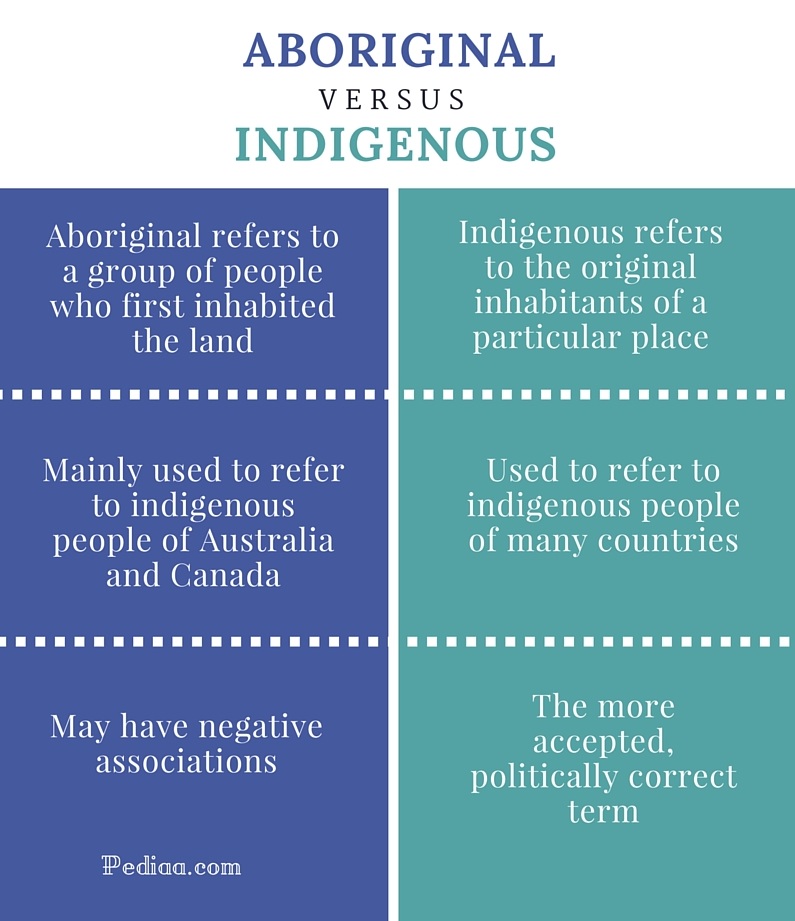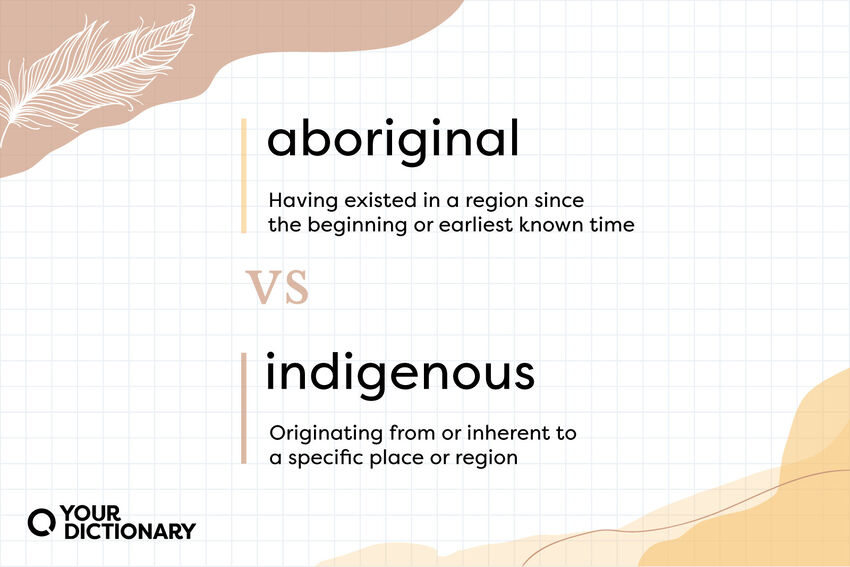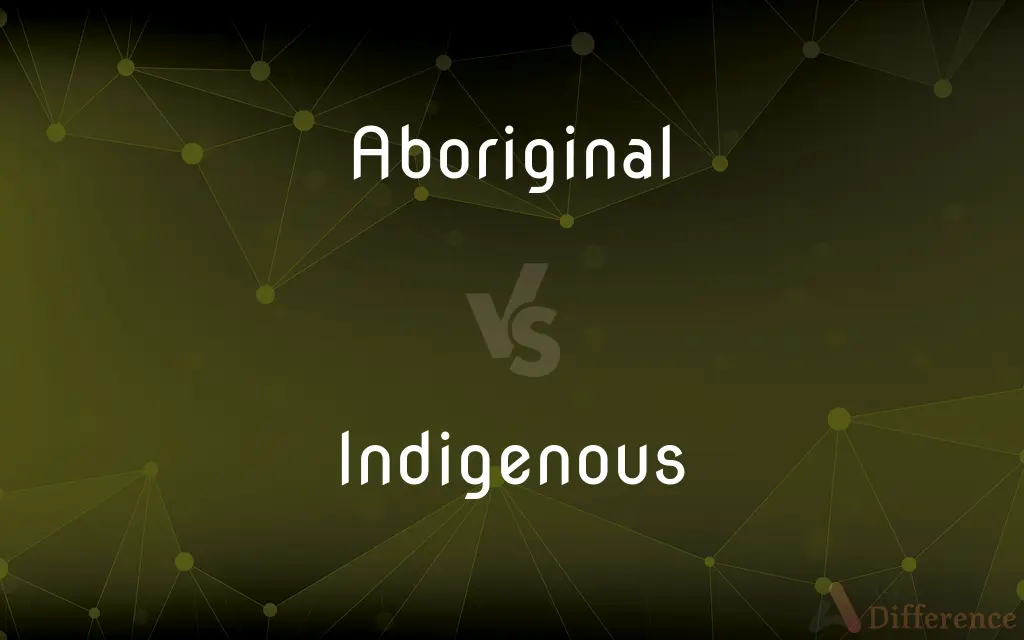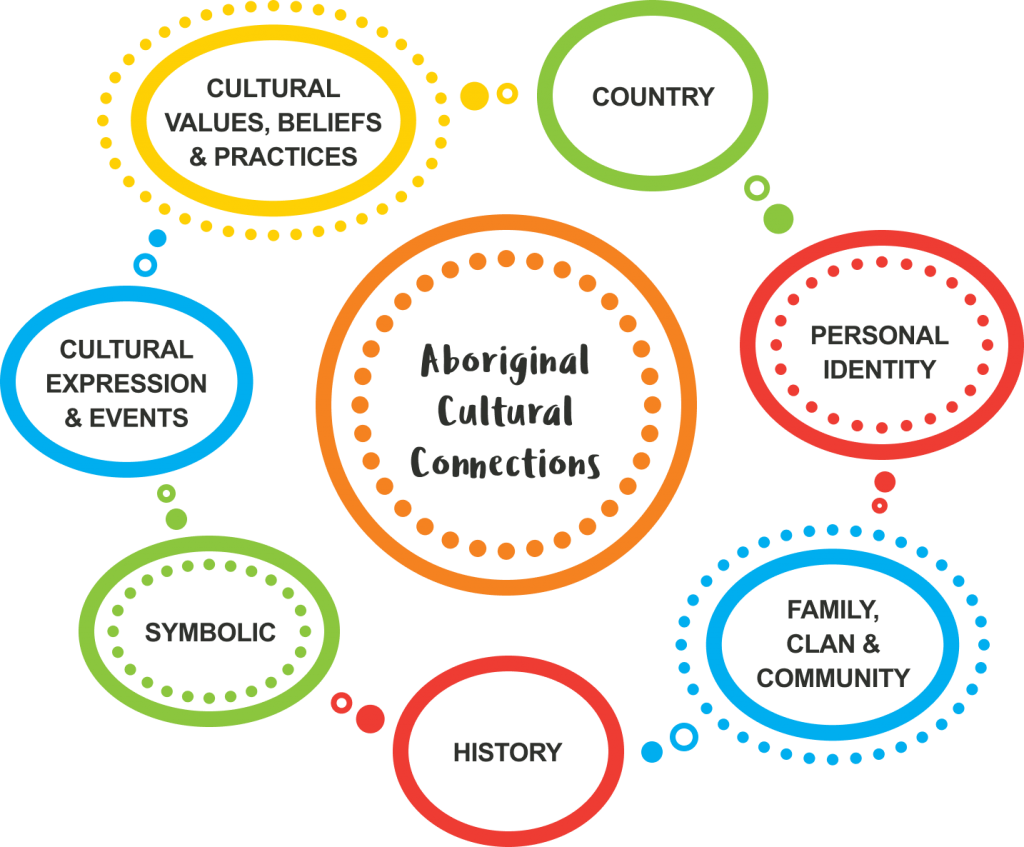what is the difference between aboriginal and indigenousTitle
Unraveling the Nuances: Aboriginal vs. Indigenous – A Global Perspective

The terms "aboriginal" and "indigenous" are often used interchangeably, leading to confusion and misrepresentation. While they share a common thread of representing the original inhabitants of a land, there are crucial distinctions that warrant understanding. This article delves into the complexities of these terms, exploring their historical origins, cultural implications, and the importance of respecting their specific meanings.
The Historical Context: A Foundation for Understanding
Related Articles: what is the difference between aboriginal and indigenousTitle
- The Enduring Spirit Of The Kangaroo: Exploring Aboriginal Art And Its Powerful Symbolism
- Beyond The Familiar: 9 Animal Names With Indigenous Origins
- Is "Aboriginal" Offensive? Navigating The Complexities Of Terminology
- Delving Into The Depths Of Dreamtime: Unraveling The Symbolism Of The Aboriginal Creation Story
- A Journey Through Meaning: Exploring Beautiful Aboriginal Girl Names
The term "aboriginal" originated from the Latin word "ab origine," meaning "from the beginning." It was initially used by European colonizers to describe the original inhabitants of lands they were exploring and claiming. This term gained widespread use in the context of Australia, where it holds a specific legal and cultural significance, referring to the First Nations people of the continent.
"Indigenous," on the other hand, derives from the Latin word "indigena," meaning "born in a place." This term gained prominence in the late 20th century as a more inclusive and globally recognized term for original inhabitants of a region, encompassing a broader range of cultures and histories.
The Global Spectrum: Beyond Australia
While "aboriginal" is a term primarily associated with Australia, "indigenous" is a more universal term used to refer to the original inhabitants of various countries and regions around the world. This includes:
- North America: First Nations, Native Americans, American Indians
- South America: Indigenous peoples of various nations like Brazil, Colombia, Peru
- Africa: Various tribal groups like the Maasai, San, and Pygmy
- Asia: Ainu people of Japan, tribal communities in India, and many others

The use of "indigenous" acknowledges the diverse cultures, languages, and histories of these groups, recognizing their unique identities and contributions to their respective regions.
Cultural Sensitivity: Recognizing the Nuances
The choice of terminology is crucial in acknowledging the specificities of different communities. While "indigenous" is a broader term encompassing a global perspective, "aboriginal" holds a distinct and significant meaning within the context of Australia.

Using "aboriginal" to refer to indigenous peoples outside of Australia can be seen as insensitive and disrespectful, as it disregards their unique cultural identities and historical experiences. Similarly, using "indigenous" for the First Nations people of Australia might overlook the specific legal and cultural significance of the term "aboriginal" in their context.
Understanding the Importance of Context
The appropriate term to use depends on the specific context and the intended audience. When discussing indigenous peoples globally, "indigenous" is the most accurate and inclusive term. However, when referring specifically to the First Nations people of Australia, "aboriginal" is the preferred and respectful term.
Beyond Terminology: A Call for Recognition and Respect
The terms "aboriginal" and "indigenous" are more than just words; they represent the rich tapestry of cultures, languages, and traditions that have thrived for millennia. Their use should be informed by an understanding of their historical and cultural significance, recognizing the unique experiences and struggles faced by these communities.

Respectful and accurate language is crucial in fostering understanding, promoting inclusivity, and honoring the contributions of indigenous peoples worldwide. It is essential to move beyond simplistic labels and delve into the complexities of their histories, cultures, and aspirations.
FAQ: What is the Difference Between Aboriginal and Indigenous?
Q: What is the difference between "aboriginal" and "indigenous"?
A: While both terms refer to the original inhabitants of a land, "aboriginal" is primarily used in Australia to refer specifically to the First Nations people of the continent. "Indigenous" is a broader term used globally to encompass all original inhabitants of various regions.
Q: When should I use "aboriginal" and when should I use "indigenous"?
A: Use "aboriginal" when referring specifically to the First Nations people of Australia. Use "indigenous" when discussing original inhabitants of other regions or globally.
Q: Is it okay to use "aboriginal" for indigenous peoples outside of Australia?
A: No, it is not appropriate to use "aboriginal" for indigenous peoples outside of Australia. It is disrespectful to their unique cultures and histories.
Q: What is the importance of using the correct terminology?
A: Using accurate and respectful terminology is crucial in acknowledging the distinct identities and experiences of indigenous communities. It demonstrates respect for their cultures and histories, fostering understanding and inclusivity.
Q: What are some other important terms to use when discussing indigenous peoples?
A: It’s important to research and use the specific terms preferred by the communities you are discussing. Some common terms include First Nations, Native Americans, American Indians, and tribal groups, among others.
Conclusion: A Path Towards Understanding and Respect
The journey towards understanding the nuances of "aboriginal" and "indigenous" is a continuous process. It requires ongoing education, respectful dialogue, and a commitment to using language that honors the diverse experiences and identities of indigenous communities. By embracing a nuanced approach, we can move towards a future where the voices of indigenous peoples are heard, their cultures are celebrated, and their rights are respected.

Closure
Thus, we hope this article has provided valuable insights into what is the difference between aboriginal and indigenousTitle. We hope you find this article informative and beneficial. See you in our next article!